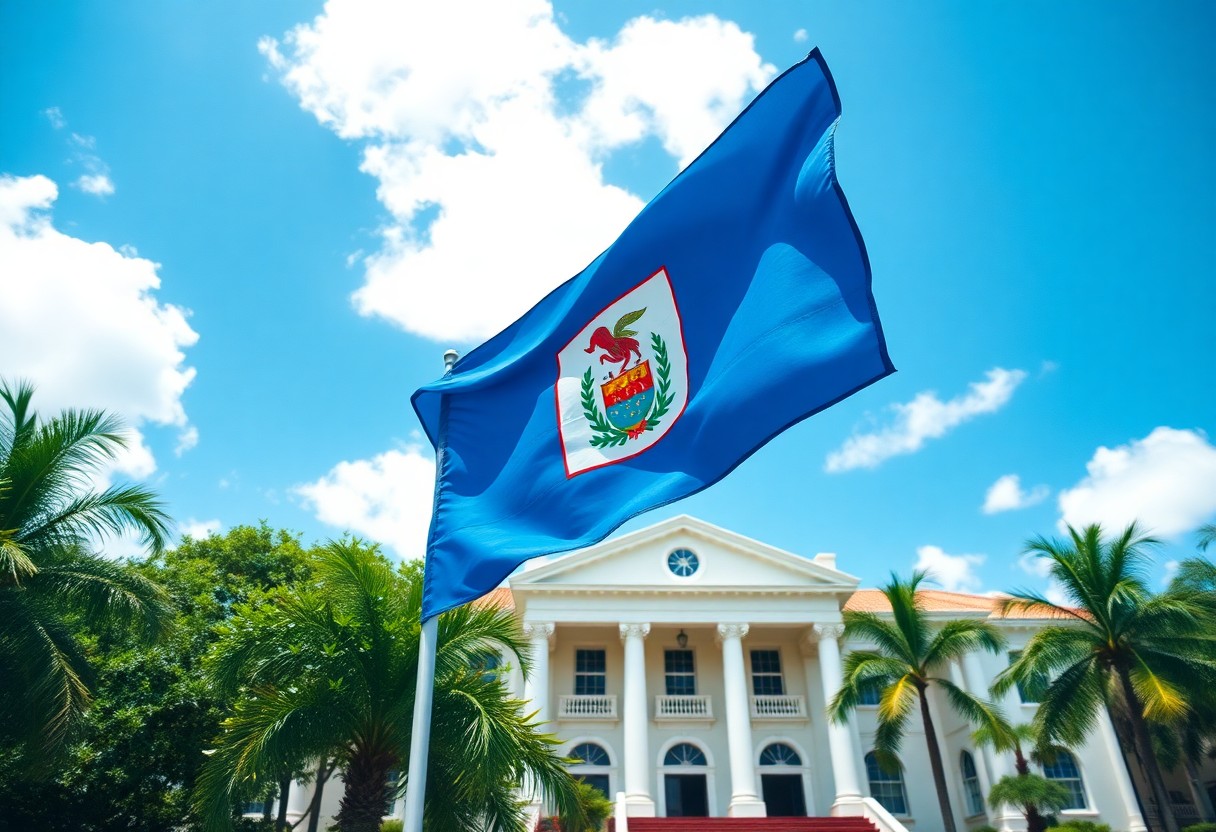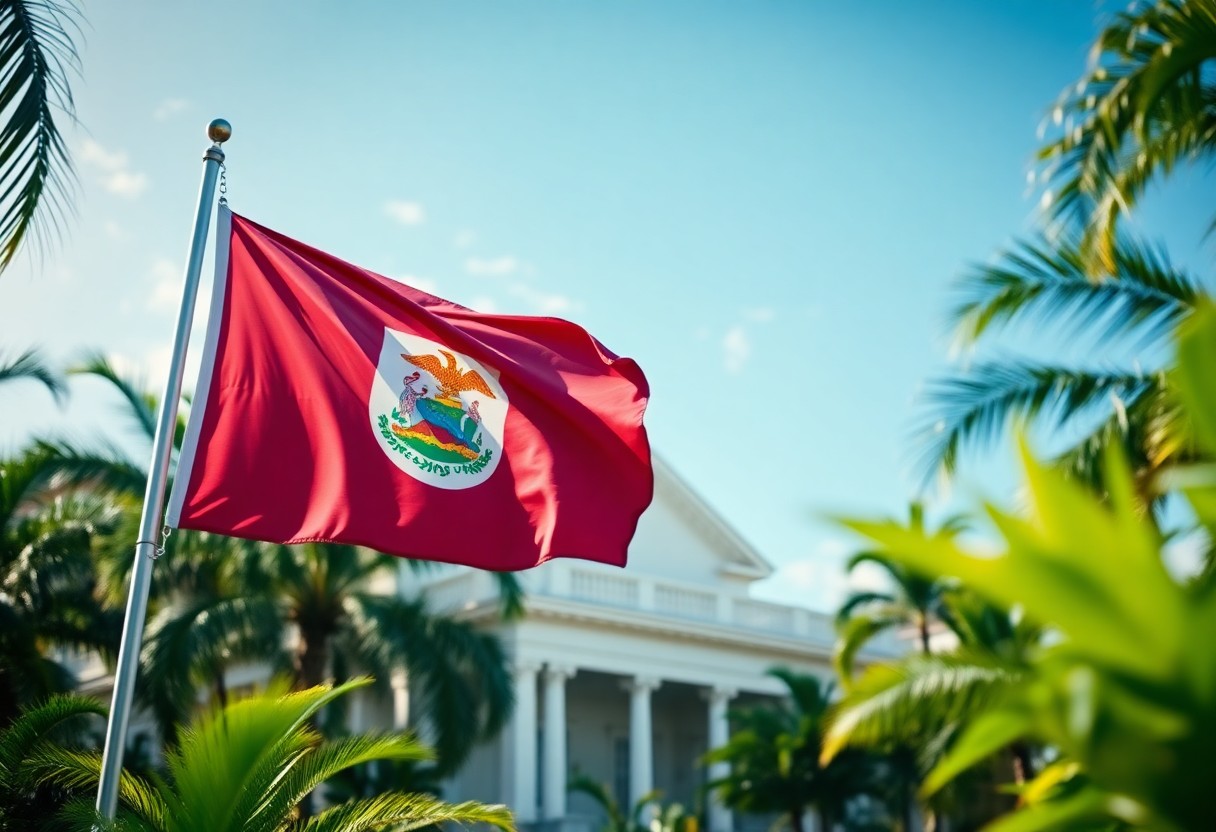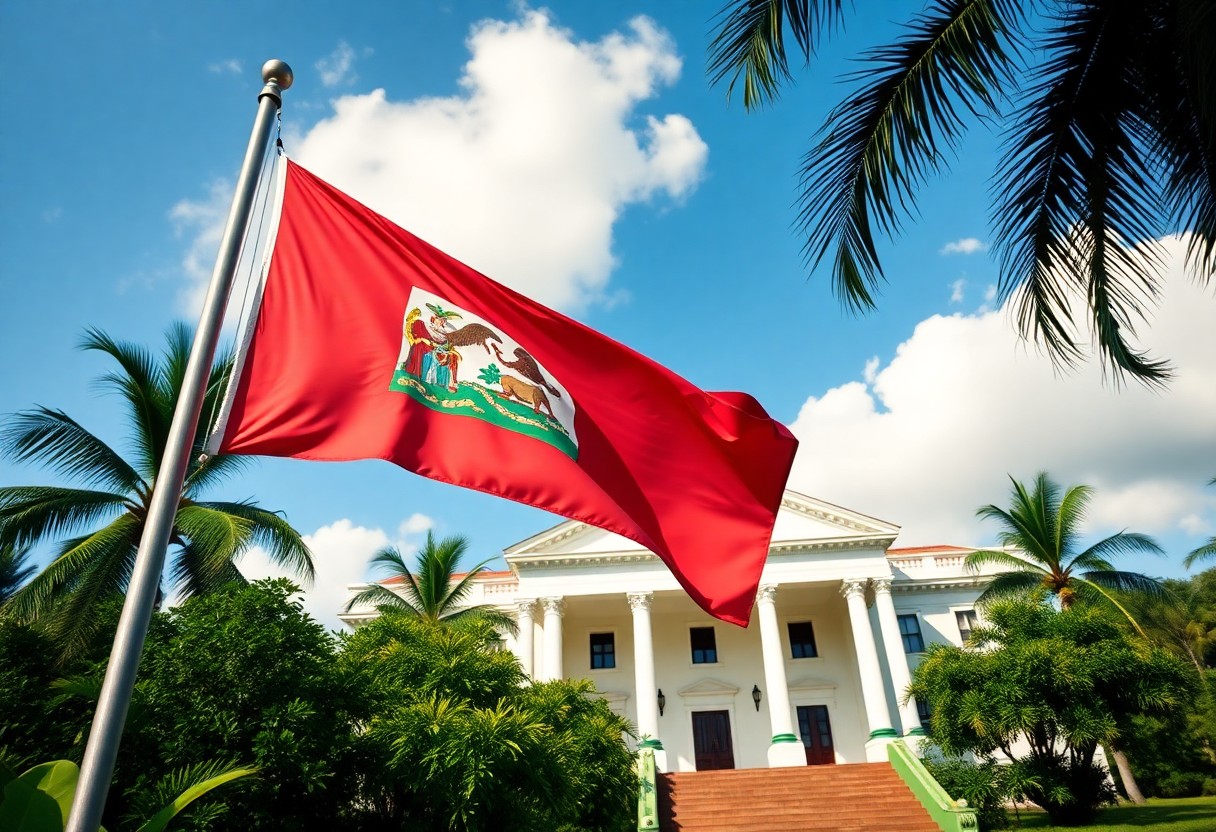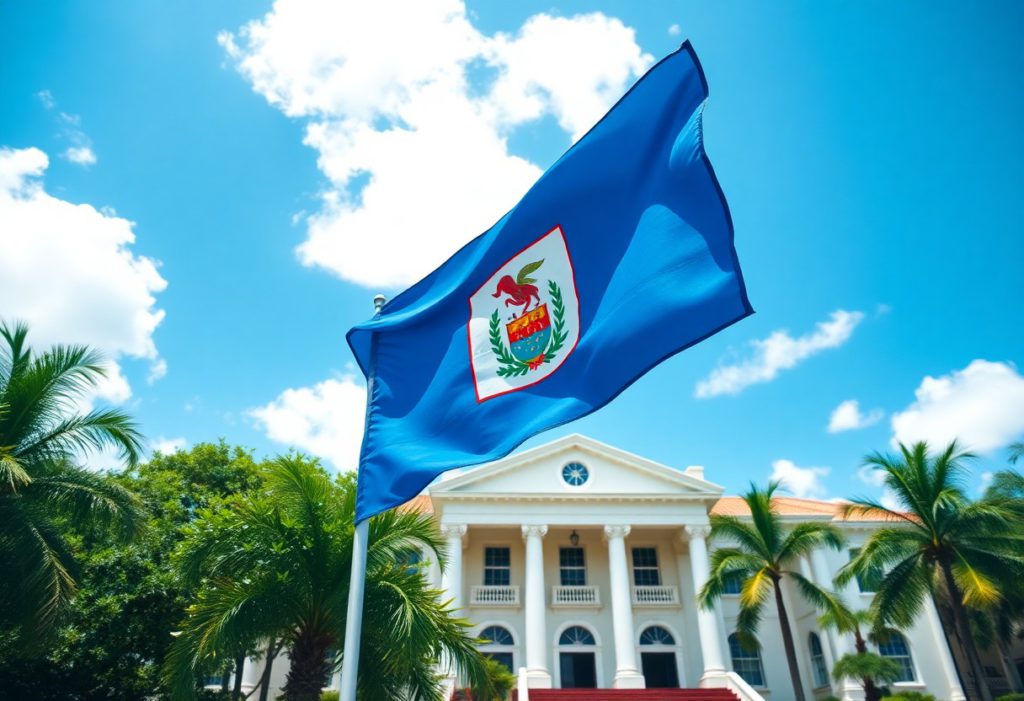Discovering Belize’s Historic Journey to Independence is essential for understanding the core of Belizean identity and its rich historical narrative. This article will explore the crucial historical events that shaped Belize’s progression toward independence. We will examine the persistent battles against colonial rule, the key treaties that were negotiated, and the landmark achievement of self-governance achieved in 1981. These defining moments not only highlight the strength and perseverance of the Belizean people but also shed light on the transformative shifts that established a democratic Belize. Join us as we delve into the significant milestones that contribute to the national identity of Belize today.

Unraveling the Rich Cultural Tapestry of Pre-Colonial Belize
Before European colonization, the pre-colonial period in Belize was marked by a vibrant array of indigenous cultures, each with its own unique contributions to history. Numerous indigenous groups thrived in this region, with the Maya civilization standing out as the most influential. These societies developed sophisticated social hierarchies, innovative agricultural practices, and extensive trade networks that were impressive for their time. The cultural legacy of this era serves as a cornerstone of Belize’s identity, profoundly affecting the historical developments that followed in the region, and continues to resonate in Belize’s contemporary society.
Highlighting the Remarkable Accomplishments of Maya Civilizations
A thorough exploration of pre-colonial Belize necessitates a focus on the outstanding achievements of the Maya civilizations. These ancient societies not only flourished but also excelled in fields such as architecture, astronomy, and agriculture. Visitors and locals alike have the opportunity to discover awe-inspiring ruins like Caracol and Lamanai, which stand as enduring symbols of the Maya’s advanced lifestyle, demonstrating their profound understanding of urban planning, mathematics, and the natural sciences.
Celebrating Belize’s Rich and Diverse Cultural Heritage
At the heart of Belize’s identity is a rich and intricate cultural heritage that draws from a diverse blend of indigenous, African, and European influences, which have all played significant roles in shaping contemporary Belizean society. The vibrancy of this heritage is vividly evident in the many languages, traditions, and customs that enrich daily life in Belize, creating a unique cultural landscape celebrated by its citizens. This blend of cultures fosters a sense of pride and belonging among Belizeans, highlighting the beauty of diversity in shaping their collective identity.
Moreover, this rich heritage significantly influences the cultural identity of Belize. The architectural achievements of the Maya, along with their agricultural advancements, continue to resonate within modern society. The contributions from the African and Creole communities have further enriched Belize’s artistic expressions, musical traditions, and culinary delights. Such a fascinating cultural blend not only encourages a strong sense of belonging and pride among Belizeans but also serves as a poignant reminder of the historical challenges faced by these diverse groups throughout Belize’s storied past.
Examining the Era of British Honduras: A Crucial Chapter in Belize’s History
The period during which Belize was known as British Honduras represents a significant chapter defined by British colonial governance. Spanning from the 18th century into the mid-20th century, this era witnessed the evolution of a distinct cultural identity heavily influenced by British rule, economic interests, and local resistance movements. It was during this time that critical shifts occurred within political and administrative structures, ultimately laying the groundwork for Belize’s unwavering quest for independence.
A Comprehensive Timeline of British Colonial Rule in Belize
After being officially designated a British colony in 1862, British Honduras experienced considerable changes, including the introduction of the British legal system and the construction of essential infrastructure. Throughout the years, the colony encountered significant resistance from the local populace, most notably during the 1934 labor riots, which played a crucial role in rallying support for self-governance among the Belizean people.
The Enduring Impact of British Colonial Governance on Belizean Society
Above all, the legacy of British colonial rule has significantly influenced the structure and governance of contemporary Belizean society. The introduction of the English language, along with various legal systems and educational frameworks, has played a vital role in modernizing the nation. While this relationship presented certain challenges, it also established the fundamental foundations for the democratic governance that Belize enjoys today.
Furthermore, the effects of British colonial rule are evident in many aspects of Belize’s modern society. The English language remains the official language, facilitating communication both within Belize and internationally. Additionally, the legal and governance frameworks that were established during colonial times laid the groundwork for Belize’s current legal system. However, it is crucial to recognize that this influence was accompanied by the exploitation of resources and cultural impositions, which have left lasting impacts on Belizean demographics and national identity. Understanding these complex dynamics is essential for comprehending Belize’s intricate path toward independence.

Charting the Significant Path to Independence for Belize
Any discussion surrounding Belize’s movement towards independence must recognize the pivotal events that forged this historic transition. The journey to freedom involved responding to colonial pressures, nurturing a growing sense of nationalism, and advocating for greater self-determination among the Belizean populace. The mid-20th century marked a significant surge in political activism, which laid the groundwork for Belize’s eventual liberation from British colonial rule.
Honoring the Key Historical Figures in Belize’s Independence Movement
Key historical milestones along Belize’s path to independence prominently feature influential leaders such as George Cadle Price. By acknowledging their leadership and vision, one can appreciate how these individuals mobilized public support for self-governance, significantly shaping the future and identity of the nation.
Participating in Critical Negotiations for Self-Governance
During the crucial discussions aimed at achieving self-governance, representatives of the Belizean people emerged as key players, proposing transformative strategies designed to alter the course of history.
Taking a proactive and determined stance, Belizean leaders engaged in discussions with British representatives regarding self-governance. These negotiations were a critical turning point, as Belize asserted its right to self-management and autonomy. The formation of political parties and organized movements played an essential role in voicing the demands for change from the Belizean populace. As tensions rose, the negotiations intensified, mirroring the urgency felt by Belizeans for autonomy. This pivotal period culminated in several constitutional amendments, paving the way for Belize’s eventual independence from colonial oversight.
Landmark Events on the Journey to Independence
A variety of significant milestones characterized Belize’s challenging journey to independence. From early legislative efforts to pivotal occurrences, each moment was instrumental in the quest for self-determination. As you examine these milestones, you will come to appreciate their profound impact on the nation’s identity and the ongoing struggle for sovereignty.
Crucial Legislative Advancements Leading to Self-Governance
One of the pivotal early legislative milestones was the introduction of the Internal Security Act in 1961. This act laid the groundwork for self-governance, allowing for a limited degree of autonomy in local governance matters. This significant legislation marked a transformative moment, inspiring Belizeans to actively engage in political processes and advocate for further reforms.
Key Events from 1964 to 1981 That Shaped Belize’s Political Environment
In the crucial years leading up to Belize’s independence, significant events from 1964 to 1981 played an essential role in molding the nation’s political landscape. These developments included the rise of influential political figures and nationalist movements, which laid the foundation for achieving self-governance.
During this transformative period, numerous key events occurred that contributed to Belize’s independence. The 1964 Elections ushered in a new era of political engagement by broadening voting rights to a wider segment of the Belizean population. The 1969 Belize-Guatemala tension heightened calls for autonomy and unity among citizens. The 1973 Constitution established a more robust governance framework, granting additional rights and freedoms to the populace. Ultimately, these developments, combined with the declaration of independence in 1981, defined Belize’s path toward establishing a national identity and self-rule.

Challenges and Progress in Post-Independence Belize
In the years following its independence in 1981, Belize faced numerous challenges and opportunities as it worked to forge a cohesive national identity and effective governance. The nation undertook significant efforts to establish a stable political environment while promoting economic growth and addressing pressing social issues. Initiatives aimed at enhancing infrastructure, education, and healthcare systems were implemented, all with the goal of improving the quality of life for every Belizean in this evolving democracy.
Understanding the Political Framework of Belize
The political structure of Belize is fundamental in shaping its governance. The country operates as a parliamentary democracy, characterized by a distinct separation of powers among the executive, legislative, and judicial branches. The Prime Minister leads the government, while the legislative assembly comprises the House of Representatives and the Senate. This political system encourages regular elections and the representation of diverse political perspectives, fostering active civic engagement among the populace.
The Significance of Commonwealth Membership for Belize
Upon achieving independence, Belize became a member of the Commonwealth of Nations, which has played a vital role in nurturing international relationships and support. This membership grants Belize access to a network of countries that share similar democratic values, facilitating participation in collaborative initiatives across sectors like education and trade.
A substantial advantage of your Commonwealth membership lies in the opportunity for dialogue regarding regional issues impacting Belize. Participation in this organization enhances Belize’s global presence while also strengthening connections with other former British colonies. Additionally, you will discover that Commonwealth nations often provide developmental assistance, which can be instrumental in overcoming local challenges. However, this membership also entails a commitment to uphold democratic values and human rights, ensuring that Belize continues to develop as a respected member of the global community.
Assessing the Modern Challenges Confronting Belize
It is crucial to acknowledge that Belize faces a myriad of contemporary challenges that significantly influence its stability and growth. These challenges encompass economic issues, social considerations, governance, and environmental factors that collectively shape the nation’s future direction. Addressing these pressing matters is essential for sustaining progress, as they directly impact the daily lives of Belizeans and the overall development of the country.
Analyzing Economic Challenges in Present-Day Belize
Current economic challenges in Belize include elevated unemployment rates and a heavy dependence on tourism as a primary economic driver. These factors contribute to economic instability, directly affecting the livelihoods of local businesses. Fluctuations in global tourism trends can have significant repercussions on Belize’s economy, placing additional strain on government resources and public services.
Confronting Social Issues in Belizean Society
In Belize, social challenges such as poverty and inequality persist as major issues. Limited access to education and healthcare services exacerbate disparities among various communities, adversely affecting the overall quality of life for Belizeans.
Moreover, it is essential to recognize that social challenges in Belize are intricately linked to the prevailing economic landscape. High rates of poverty directly impede access to essential services, and inequalities in education can hinder future opportunities for many. Despite these challenges, community initiatives and government programs are actively addressing these concerns, fostering a sense of hope and resilience among the population. By strengthening social connections and investing in education and healthcare, Belize can move closer to achieving a more equitable society for all its residents.
Reflecting on the Historical Significance of Belize’s Path to Independence
Reflecting on Belize’s journey to independence allows for a deeper appreciation of the significance of key historical milestones that shaped the nation. The ramifications of the constitutional changes in 1964 and 1973 laid the groundwork for self-governance, while the 1975 Treaty of Friendship with Guatemala addressed long-standing territorial disputes. Ultimately, the formal independence achieved on September 21, 1981, marked a transformative chapter in Belize’s history, enabling every Belizean to celebrate their national identity and sovereignty. Each of these milestones played a vital role in shaping Belize into the nation it stands as today.
Common Questions about Belize’s Independence Journey
What Historical Events Were Critical in Belize Gaining Independence?
Belize’s journey to independence featured a series of significant events. The independence movement gained momentum during the 1940s, culminating in 1981 when Belize officially freed itself from British colonial rule. Key milestones during this timeframe included the establishment of a constitutional government in 1964 and the organization of self-governing elections.
Who Were the Key Figures Involved in Belize’s Independence Movement?
A number of influential figures played central roles in the independence movement. George Price, the leader of the People’s United Party, was instrumental in advocating for Belize’s independence. Other notable individuals included Philip Goldson and various members of political organizations that actively campaigned for self-determination.
How Did the British Government React to Belize’s Independence Movement?
The British government initially resisted the push for independence but eventually recognized Belize’s readiness for self-governance. This shift occurred as they observed the rising political awareness and activism among Belizeans. British officials worked alongside local leaders to facilitate a smooth transition toward independence.
The Article How Belize Gained Independence: Key Historical Milestones appeared first on Belize Travel Guide
The Article Belize Independence: Key Historical Milestones Explained Was Found On https://limitsofstrategy.com


